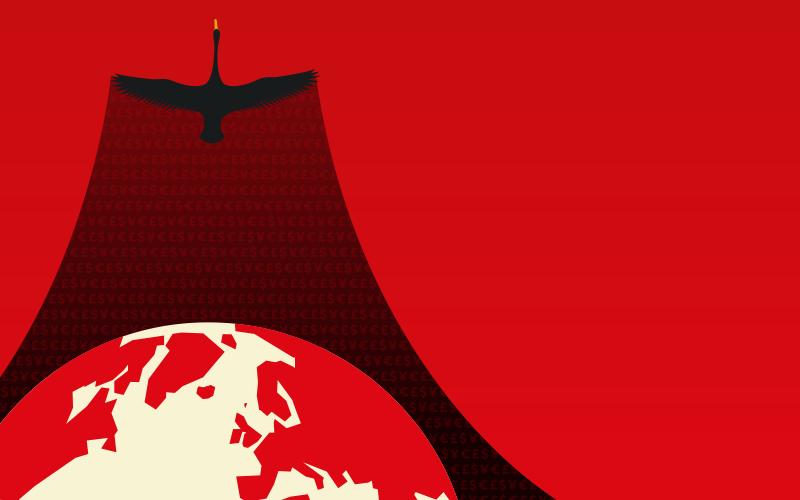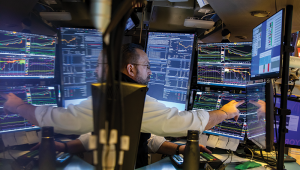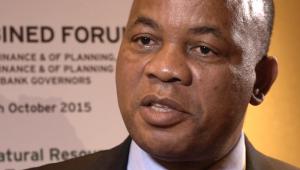web_p26-27_on-a-wing-and-a-prayer_graphic-1_credit_shutterstock_david-twardawa.png

Image Credit | Shutterstock
It must have come as quite a shock. In 1697, Willem de Vlamingh and his group of Dutch explorers sailed up what is now the Swan River in Perth, Western Australia. What they encountered confounded centuries of received wisdom. Up until that point, all the empirical evidence available to Europeans supported the assumption that all swans were white. But, to their surprise, the Dutch expedition had accidentally stumbled across a black variety.
As a result of the discovery, the collective noun for a group of swans had to be changed in the Oxford English Dictionary from a ‘whiting’ to a ‘bevy’. Moreover, the term ‘black swan’ came to be used to refer to an event that is characterised as both highly unlikely and serious in terms of its consequences.
But quite what counts as a black swan event is a matter of hot debate. Commonly cited examples include the 9/11 attacks on the US, the global financial crisis and latterly, of course, Covid-19. Certainly, all those events had serious consequences – which will continue to be felt for years to come – but they were, to a greater or lesser degree, predictable.
After all, it was already a matter of record that Osama bin Laden had orchestrated attacks against US assets, while journalist Michael Lewis chronicled, in his book The Big Short, multiple investors who saw the sub-prime crisis coming and made huge sums out of it. And Covid-19? Well, scientists had been saying for years that the world was overdue a global pandemic.
In a sense, the debate is academic. Whether unpredictable or merely highly unlikely, the important thing is that governments expect the unexpected and make contingency plans. The problem is that they – along with people generally – tend to be poor at doing so.
It is an issue that was raised by Jagan Chapagain, secretary general of the International Federation of Red Cross and Red Crescent Societies, and Dr Andrew Steer, then president and chief executive of the World Resources Institute and now president and chief executive of the Bezos Earth Fund, in a submission to the World Economic Forum at the height of the pandemic. “The world has been planning for the future in the mistaken belief that it will resemble the past,” they wrote. “But as Covid-19 coincides with cyclones in South Asia and the Pacific and vast locust swarms in East Africa, the need to prepare for a world of unexpected shocks has become clearer than ever.”
The pandemic is a global wake-up call, they added: “In particular, Covid-19 and recent climate disasters have shown that we must step up investment in preparedness now, instead of waiting for the next crisis to hit. The choice is clear: delay and pay, or plan and prosper.”
As Chapagain and Steer pointed out, it is not possible to pinpoint when or where the next natural disaster will happen, or when another nasty virus might raise its ugly head. But they were clear that such events are inevitable and that it is far more cost-effective to put meaningful contingency plans in place than for governments worldwide to bury their heads in the sand.
“To be sure, preparing for major shocks involves substantial outlays,” they said. “Building resilience to climate impacts could cost $140bn-$300bn a year by 2030, while meeting World Health Organization minimum standards for pandemic preparedness will require up to $3.4bn per year.”
Despite being eye-watering sums, these are “small compared with the costs of not being prepared,” wrote Chapagain and Steer. “Natural disasters already cost hundreds of billions of dollars a year. With a 2˚C increase in temperature, one estimate shows that damages from climate change could reach $69trn by 2100.”
So, what key risks to government finances are currently underestimated? And what would be the consequences if they came about? PF speaks to experts who analyse where the world is headed.
Debt trap
Inflation is currently running relatively high in many Western countries, certainly significantly above most central banks’ targets. In part – and in some places – that is down to deliberate government strategy, according to US futurist Dr Bill Conerly.
“The Federal Reserve wants to run the economy hot,” he says. “It wants a job market where a dropout from high school with a prison record can get a job. I like the idea of people being able to turn their lives around, but in order to help the most disadvantaged people in the job market, you have to run the economy very hot – and then you get inflation.”
Traditionally, the monetary response of central banks to high inflation is to raise interest rates, something that at first glance should be more than possible, given that rates remain at historic lows in most countries. There is a problem, however – debt.
“The Federal Reserve wants to run the economy hot. It wants a job market where a dropout from high school with a prison record can get a job”
- US futurologist Dr Bill Conerly
“Global debt has grown explosively,” wrote Robert Wade, professor of political economy and development in the Department of International Development at the London School of Economics, in a recent paper. “The Institute of International Finance estimates that global debt hit a new record of $281trn in 2020, with public spending on the Covid-19 pandemic contributing ‘only’ $24trn to that figure.”
Much of that borrowing is held privately, meaning that indebted households – including all mortgage-holders – would see their disposable income reduce significantly if interest rates were to rise significantly, thereby reducing demand in the economy. At the same time, government debt around the world has rocketed as a result of the pandemic, no matter the fiscal positions of individual states pre-crisis. Raising interest rates is therefore highly problematic.
The result is what Wade describes as the ‘debt trap’ – enduring inflation would make it both politically necessary yet fiscally next to impossible to raise interest rates. Some governments will find the appropriate balance, but inevitably others will fail, triggering a recession. Wade predicts that, if that failure is sufficiently significant, a recession
on the scale of the global financial crisis is possible before the end of 2024.
A deadlier pandemic
Speaking of public debt, what happens if another pandemic – a new virus, rather than a variant of Covid-19 that could be dealt with by adapting existing vaccines – emerges? After all, with government debt at record levels, could the world cope with another $24trn bill?
This is not as fanciful as it sounds. Governments and much of the media have been fond of describing Covid-19 as a once-in-a-hundred-year event. The reason for that is obvious – the last time the world saw a pandemic on this scale was in 1918, when troops returning from the First World War spread the so-called ‘Spanish flu’.
However, the world has changed significantly since then. First, we are far more interconnected, meaning that if a new virus does emerge, it will spread quickly, just as Covid-19 did in January and February 2020. Moreover, scientists are concerned that as mankind encroaches ever more on the natural world, the likelihood of animal-to-human transmission of naturally occurring viruses increases.
“This is not the last pandemic,” says futurologist Dr James Bellini. “The consensus is that this is the beginning of a pattern of pandemics and we just have to learn to live with them and deal with them. We do not live in a world of silos. We live in a world where everything is interconnected. It has been on the move for a few years, but only recently has it become truly globalised.”
“It is not the worst pandemic that the British Isles has ever faced. In a serious pandemic, like the Black Death, 20% to 50% of the population dies”
- Futurologist Benjamin Butler
Fellow futurologist Benjamin Butler agrees – and points out that, however horrible, Covid-19 has been relatively mild compared with previous pandemics. “It is not the worst pandemic that the British Isles has ever faced,” he says. “In a serious pandemic, like the Black Death, 20% to 50% of the population dies. With Covid-19, we are talking about less than 1% [of people who] get infected dying.”
If something worse emerges, central governments might be able to find additional resources, although their ability to continue creating money is not infinite. Local authorities do not even have the option. “For local government, it really comes down to resilience, because, unlike central government, it does not have the capacity to just monetise away the debt,” says Jeffrey Matsu, chief economist at CIPFA. “But, in any case, you cannot just keep printing money.”
War
While no one would wish to belittle the human tragedy of recent conflicts, the world has not seen an intercontinental ‘hot’ war for more than 70 years. However, there are plenty of informed commentators who fear that could change relatively quickly. Perhaps most worrying, it appears that China’s designs on Taiwan are growing ever stronger – and US president Joe Biden recently took the unexpected step of saying that his country would defend the territory.
“I look at what is happening with China and the potential for a war over Taiwan,” says Conerly. “President Biden has said we would defend it, which was a surprise, because nobody else thought we were actually saying that. We wanted to be vague.”
Butler is also concerned that the US could end up sleepwalking into a conflict. “Any declining empire often flails around and tends to get into wars and fights,” he says. “Many years ago, I said that China would probably take Taiwan.”
“I look at what is happening with China and the potential for a war over Taiwan. President Biden has said we would defend it, which was a surprise”
- US futurist Dr Bill Conerly
In November, it was reported that satellite images had shown that China had constructed mock-ups of US naval vessels, presumably to war-game future scenarios in which the countries engaged over Taiwan or potentially other issues. “[The Chinese] could be thinking of this as a defensive attitude, to make sure they do not get pushed around by the US, but it could be a prelude to invading Taiwan,” says Conerly. “That would be disastrous for the people who live there now and not good for the global economy at all.”
For his part, Bellini is concerned that Japan is also showing signs of increasing militarisation in response to growing Chinese belligerence, following decades when the role of the country’s army was largely confined to domestic duties.
“After the Second World War, Japan agreed that it would never have any warlike preparations of any kind, so its armed forces are limited to policing really,” he says. “It is now trying to get rid of this in anticipation of being in a part of the world that is increasingly unpredictable in terms of conflict.”













